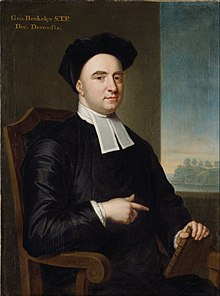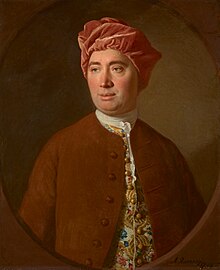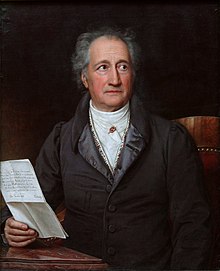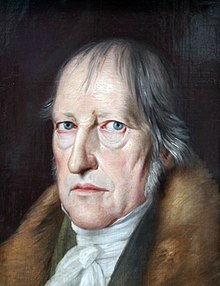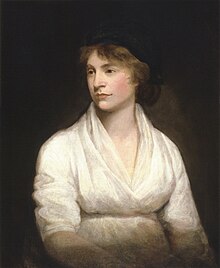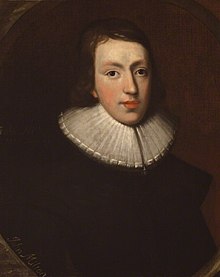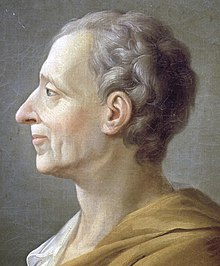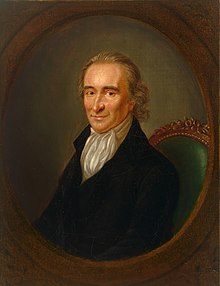
Enlightenment philosophers
The Age of Enlightenment, or simply the Enlightenment, was an intellectual and philosophical movement that dominated Europe in the 17th and 18th centuries with global influences and effects. The Enlightenment included a range of ideas centered on the value of human happiness, the pursuit of knowledge obtained by means of reason and the evidence of the senses, and ideals such as liberty, progress, toleration, fraternity, constitutional government, and separation of church and state.The Enlightenment was preceded by the Scientific Revolution and the work of Francis Bacon, among others.
14 episodes
Episodes in this category also belong to the following categories:
Bishop Berkeley
Melvyn Bragg and his guests discuss the philosopher George Berkeley, one of the most significant thinkers of the 18th century.
20 March 2014
Featuring: Peter Millican, Tom Stoneham, Michela Massimi
PhilosophyEpistemologistsIdealistsAnglican philosophersPeople educated at Kilkenny CollegeAcademics of Trinity College Dublin18th-century Irish writersEnlightenment philosophers17th-century Anglo-Irish people17th-century Anglican theologiansScholars of Trinity College DublinAlumni of Trinity College DublinPhilosophers of science18th-century Anglo-Irish people, 18th-century Irish male writers18th-century Irish philosophersEmpiricistsHistory of calculus18th-century Anglican theologiansCondorcet
Melvyn Bragg and guests discuss the influential French philosopher and mathematician who tried to apply his Enlightenment ideas on the benefit of education to the French Revolution.
11 January 2024
Featuring: Rachel Hammersley, Richard Whatmore, Tom Hopkins
PhilosophyFrench political scientistsFrench sociologistsDeputies to the French National ConventionFrench biographers, French ethicistsHonorary members of the Saint Petersburg Academy of SciencesFrench philosophers of scienceFrench feminists18th-century philosophersTheoretical historiansAge of EnlightenmentFrench atheists18th-century French mathematiciansRationalistsBurials at the Panthéon, ParisFrench philosophers of historyFrench philosophers of educationFellows of the American Academy of Arts and Sciences18th-century French writersMembers of the Académie FrançaiseFrench male non-fiction writersFrench philosophers of cultureMembers of the French Academy of SciencesAtheist philosophersVoting theoristsFrench abolitionistsPhilosophers of religionProto-feministsEnlightenment philosophersUniversity of Paris alumniMembers of the Royal Swedish Academy of SciencesPeople killed in the French RevolutionScholars of feminist philosophy18th-century French male writersDavid Hume
Melvyn Bragg and his guests discuss the work of David Hume, the philosopher and leading figure of the Scottish Enlightenment.
6 October 2011
Featuring: Peter Millican, Helen Beebee, James Harris
PhilosophyCriticism of rationalismEpistemologistsAction theorists18th-century British essayistsMetaphilosophersSkeptic philosophersPhilosophers of social scienceTheorists on Western civilizationPhilosophers of logicSecular humanistsSocial philosophersPhilosophy writersPhilosophers of economicsWriters about religion and sciencePhilosophers of identityBritish philosophers of educationVirtue ethicistsBritish male non-fiction writers18th-century British philosophersPhilosophers of psychologyPhilosophers of artCritics of the Catholic ChurchBritish critics of religionsPhilosophers of mathematicsAlumni of the University of EdinburghConservatismEmpiricistsOntologistsPhilosophers of mindDeist philosophersPeople of the Scottish EnlightenmentPhilosophers of religionFreethought writersBritish consciousness researchers and theoristsEnlightenment philosophersWriters about activism and social changePhilosophers of sciencePhilosophers of historyBritish male essayistsGoethe
Melvyn Bragg discusses the great German polymath Johann Wolfgang Goethe - novelist, dramatist, poet, humanist, scientist and philosopher.
6 April 2006
Featuring: Tim Blanning, Sarah Colvin, W. Daniel Wilson
Philosophers of linguisticsGerman philosophers of artRomantic poetsGerman philosophers of scienceGerman political philosophersJohann Wolfgang von Goethe, Sturm und Drang18th-century German civil servants, 18th-century German dramatists and playwrights, 18th-century German historians, 18th-century German novelists, 18th-century German poets, 18th-century travel writers, 19th-century German civil servants, 19th-century German diplomats, 19th-century German dramatists and playwrights, 19th-century German poets, German bibliophiles, German diplomats, German male novelists, People from Weimar, Scientists from Weimar, Writers from Frankfurt, Writers from WeimarLiteracy and society theoristsPhilosophers of social science19th-century German philosophersTheorists on Western civilizationGerman travel writersPhilosophers of literaturePhilosophers of sexualityEpic poets19th-century German novelistsPhilosophy writersLeipzig University alumni18th-century German male writersEpigrammatists18th-century German philosophers, 18th-century essayists19th-century travel writers19th-century German male writersUniversity of Strasbourg alumniGerman philosophers of languageMembers of the Göttingen Academy of Sciences and HumanitiesLiterary theoristsMembers of the Bavarian Academy of SciencesFabulistsGerman untitled nobilityGerman philosophers of culture19th-century German essayistsGerman male essayists18th-century German educators, 18th-century historians, 19th-century German educators, 19th-century historiansGerman autobiographersGerman ethicists, German philosophers of educationNatural philosophersGerman male dramatists and playwrights, German male poetsPantheistsFreethought writersEnlightenment philosophersGerman librariansWriters about activism and social changeColor scientistsGerman Freemasons19th-century German historians19th-century German non-fiction writersGerman philosophers of historyGerman male non-fiction writersGoethe and the Science of the Enlightenment
Melvyn Bragg assesses the scientific legacy of the 18th century German poet and thinker Goethe, who gave us the term morphology and is sometimes even credited with inventing biology itself.
10 February 2000
Featuring: Nicholas Boyle, Simon Schaffer
SciencePhilosophers of linguisticsGerman philosophers of artRomantic poetsGerman philosophers of scienceGerman political philosophersJohann Wolfgang von Goethe, Sturm und Drang18th-century German civil servants, 18th-century German dramatists and playwrights, 18th-century German historians, 18th-century German novelists, 18th-century German poets, 18th-century travel writers, 19th-century German civil servants, 19th-century German diplomats, 19th-century German dramatists and playwrights, 19th-century German poets, German bibliophiles, German diplomats, German male novelists, People from Weimar, Scientists from Weimar, Writers from Frankfurt, Writers from WeimarLiteracy and society theoristsPhilosophers of social science19th-century German philosophersTheorists on Western civilizationGerman travel writersPhilosophers of literaturePhilosophers of sexualityEpic poets19th-century German novelistsPhilosophy writersLeipzig University alumni18th-century German male writersEpigrammatists18th-century German philosophers, 18th-century essayists19th-century travel writers19th-century German male writersUniversity of Strasbourg alumniGerman philosophers of languageMembers of the Göttingen Academy of Sciences and HumanitiesLiterary theoristsMembers of the Bavarian Academy of SciencesFabulistsGerman untitled nobilityGerman philosophers of culture19th-century German essayistsGerman male essayists18th-century German educators, 18th-century historians, 19th-century German educators, 19th-century historiansGerman autobiographersGerman ethicists, German philosophers of educationNatural philosophersGerman male dramatists and playwrights, German male poetsPantheistsFreethought writersEnlightenment philosophersGerman librariansWriters about activism and social changeColor scientistsGerman Freemasons19th-century German historians19th-century German non-fiction writersGerman philosophers of historyGerman male non-fiction writersHegel's Philosophy of History
Melvyn Bragg and guests discuss Hegel's ideas on history as the progress of the consciousness of freedom, and whether we enjoy more freedom now than those in past centuries.
26 May 2022
Featuring: Sally Sedgwick, Robert Stern, Stephen Houlgate
PhilosophyGerman philosophers of artGerman political philosophersUniversity of Tübingen alumniGerman LutheransTheoretical historians19th-century German philosophers19th-century mysticsGerman idealistsPhilosophers of law18th-century German writersDeaths from choleraPhilosophy writers18th-century German male writersGerman philosophers of mind, German philosophers of religionWriters about religion and scienceAcademic staff of the Humboldt University of Berlin18th-century German philosophers, 18th-century essayists19th-century German male writersGerman philosophers of language19th-century German essayistsBurials at the Dorotheenstadt CemeteryGerman male essayists18th-century German educators, 18th-century historians, 19th-century German educators, 19th-century historiansMetaphysiciansHeidelberg University alumniPantheistsEnlightenment philosophersGerman philosophers of historyGerman male non-fiction writersKant's Copernican Revolution
Melvyn Bragg and guests discuss Kant's ideas on how the world depends on us, on the limits of human knowledge and why we are bound to ask questions we cannot answer.
3 June 2021
Featuring: Fiona Hughes, Anil Gomes, John Callanan
PhilosophyGerman philosophers of artNatural law ethicistsGerman philosophers of scienceGerman political philosophersMetaphilosophersPhilosophers of social sciencePhilosophers of warGerman Lutherans18th-century philosophersTheoretical historiansGerman nationalists19th-century German philosophersTheorists on Western civilizationPhilosophers of literatureGerman idealistsAge of EnlightenmentPhilosophers of logicLogiciansPhilosophers of lawPhilosophers of sexuality18th-century German writersPhilosophy writersRationalists18th-century German male writersKantianismGerman philosophers of mind, German philosophers of religionWriters about religion and science18th-century German philosophers, 18th-century essayists19th-century German male writers19th-century Prussian peopleHumor researchersGerman philosophers of culture19th-century German essayistsPeople of the Age of EnlightenmentGerman agnosticsGerman male essayistsOntologistsGerman ethicists, German philosophers of educationLecturersMembers of the Prussian Academy of SciencesIdealistsNatural philosophersEnlightenment philosophersGerman epistemologistsWriters about activism and social change19th-century German non-fiction writersGerman philosophers of historyGerman male non-fiction writersGerman logicians, Kantian philosophersMary Wollstonecraft
Melvyn Bragg and guests John Mullan, Karen O'Brien and Barbara Taylor discuss the life and ideas of the pioneering British Enlightenment thinker Mary Wollstonecraft.
31 December 2009
Featuring: Karen O'Brien, John Mullan, Barbara Taylor
PhilosophyEnglish travel writersFeminist theorists18th-century British essayists18th-century English novelistsHistorians of the French RevolutionEnglish women philosophersFrench–English translatorsWriters of Gothic fictionEnglish feminist writers, English feministsBurials at St Pancras Old ChurchBritish philosophers of educationGodwin familyBritish women essayists18th-century British philosophersEnglish philosophersDeaths in childbirthGerman–English translatorsPeople from Somers Town, LondonEnglish UnitariansFounders of English schools and collegesEnglish essayistsEnlightenment philosophersEnglish educational theorists18th-century English historiansEnglish republicansScholars of feminist philosophyEnglish women novelistsMilton
Melvyn Bragg examines the literary and political career of the 17th century poet John Milton, examining work such as Paradise Lost as well as his role as propagandist during the English Civil War.
7 March 2002
Featuring: John Carey, Lisa Jardine, Blair Worden
Mythopoeic writersChristian humanistsBlind writersEnglish male dramatists and playwrightsPeople from the City of LondonLiteracy and society theorists17th-century English dramatists and playwrights17th-century English philosophersEnglish writers with disabilitiesBritish philosophers of religionPamphleteersNeoclassical writersRhetoriciansBritish free speech activistsEpic poetsChristian poetsSocial philosophersMale essayistsAnglican poetsDeaths from kidney failure in the United KingdomMetaphor theoristsEnglish DissentersRhetoric theoristsAlumni of Christ's College, Cambridge17th-century writers in LatinLiterary theoristsCritics of the Catholic ChurchEnglish male poets17th-century English writersEnglish theologians17th-century English poetsEnglish Anglican theologiansWriters from LondonAnti-Catholicism in the United KingdomBlind poetsCalvinist and Reformed poetsSonneteersAnglican philosophers17th-century English educatorsEnglish essayistsEnglish political philosophersEnlightenment philosophersEnglish educational theoristsWriters about activism and social changeEnglish non-fiction writersEnglish republicans17th-century English male writersMontesquieu
Melvyn Bragg and guests discuss the ideas of the French political philosopher (1689-1755) whose work on liberty and republicanism, banned at home, influenced the US constitution.
14 June 2018
Featuring: Richard Bourke, Rachel Hammersley, Richard Whatmore
HistoryMembers of the Prussian Academy of SciencesPhilosophers of law18th-century French philosophersFellows of the Royal SocietyFrench Roman CatholicsContributors to the Encyclopédie (1751–1772)Enlightenment philosophersMembers of the Académie FrançaiseFrench political writersFrench philosophers of historyFrench political philosophers18th-century French male writersMoses Mendelssohn
Melvyn Bragg and guests discuss the work of Moses Mendelssohn, one of the greatest thinkers of the German Enlightenment.
22 March 2012
Featuring: Christopher Clark, Abigail Green, Adam Sutcliffe
Rousseau on Education
Melvyn Bragg and guests discuss Rousseau's ideas on how to educate children so they retain their natural selves and are not corrupted by society.
10 October 2019
Featuring: Richard Whatmore, Caroline Warman, Denis McManus
Philosophy18th-century male musicians18th-century philosophersConverts to Roman Catholicism from Calvinism, Romantic philosophersPhilosophers of literatureAge of EnlightenmentProto-evolutionary biologistsSocial philosophersPhilosophers of economicsBurials at the Panthéon, ParisFrench political philosophersCatholic philosophersPhilosophers of culturePhilosophers of educationPhilosophers of artPeople with hypochondriasis18th-century classical composersDeist philosophersPhilosophers of mindContributors to the Encyclopédie (1751–1772)Classical-period composersAutobiographersEnlightenment philosophersWriters about activism and social changePhilosophers of scienceSimple living advocatesSpinoza
Melvyn Bragg discusses the philosopher Spinoza whose profound and complex ideas about God had him celebrated as an atheist in the 18th century.
3 May 2007
Featuring: Jonathan Rée, Sarah Hutton, John Cottingham
PhilosophyEpistemologistsMetaphilosophersDeterministsAge of EnlightenmentSocial philosophersPhilosophy writersRationalistsPhilosophers of culturePhilosophers of education17th-century writers in LatinCritics of the Catholic ChurchPeople of the Age of EnlightenmentCritics of JudaismOntologistsPhilosophers of mindMetaphysiciansJewish philosophersJewish translators of the BiblePhilosophers of religionPantheistsEnlightenment philosophersBaruch SpinozaPhilosophers of sciencePhilosophers of historyThomas Paine's Common Sense
Melvyn Bragg and guests discuss Thomas Paine's pamphlet Common Sense, which was published in 1776 and bolstered support for American independence.
21 January 2016
Featuring: Kathleen Burk, Nicholas Guyatt, Peter Thompson
History19th-century American writersEnglish libertarians19th-century American philosophersBritish deistsDeputies to the French National Convention18th-century philosophersAmerican male non-fiction writersClassical liberalismTheorists on Western civilizationAmerican deists19th-century male writersRadicalsSocial philosophers18th-century English writersAmerican political philosophers18th-century English peoplePolitical activists from PennsylvaniaNaturalized citizens of France18th-century American male writers, American foreign policy writersAmerican philosophers of cultureUniversal basic income writersHall of Fame for Great Americans inducteesAmerican philosophers of religionCritics of Judaism19th-century English writersDeist philosophersAmerican nationalists, American religious skepticsMembers of the American Philosophical SocietyEnlightenment philosophersEnglish inventorsWriters about activism and social changePhilosophers of historyEnglish republicans18th-century American writers, Founding Fathers of the United States, People of the American EnlightenmentAnti-monarchists18th-century English male writersAmerican philosophers of education
